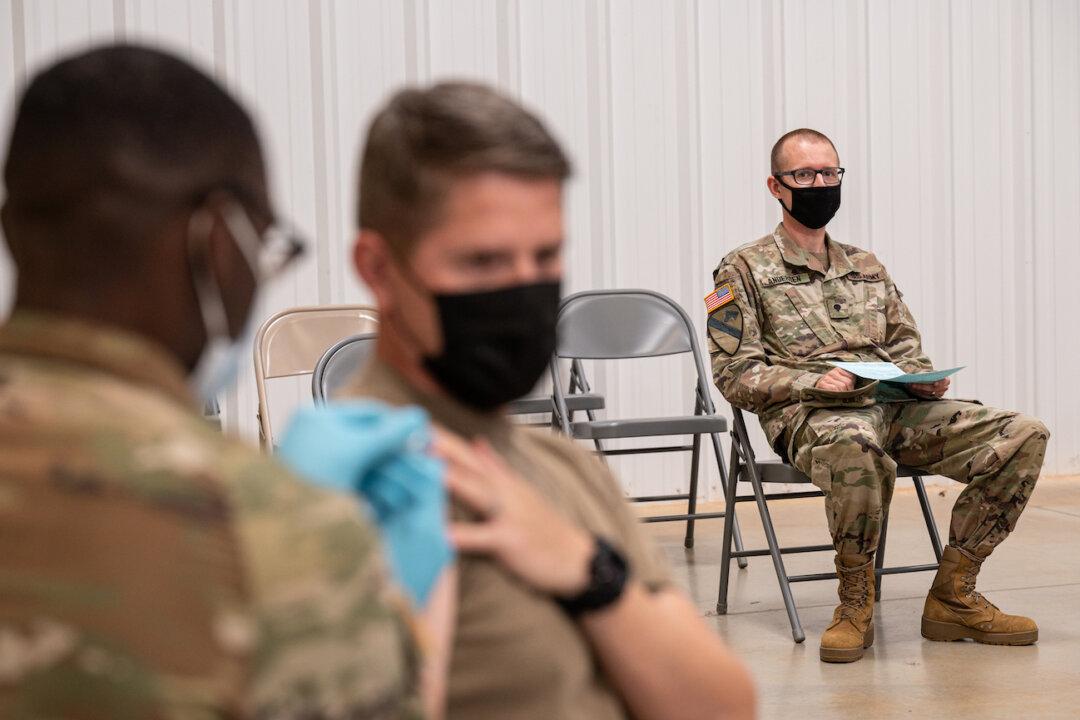Nearly 50 Republican lawmakers, led by Rep. Mike Johnson (R-La.), have called on the Department of Defense (DOD) to withdraw its COVID-19 vaccine mandate for military members, citing concerns over the mandate’s impact on the readiness of the U.S. armed forces.
In a letter to Secretary of Defense Lloyd Austin dated Sept. 15 (pdf), the lawmakers, including Reps. Chip Roy (R-Texas) and Thomas Massie (R-Ky.), expressed their “grave concerns” over the impact of the mandate, particularly with regard to the U.S. Army.




